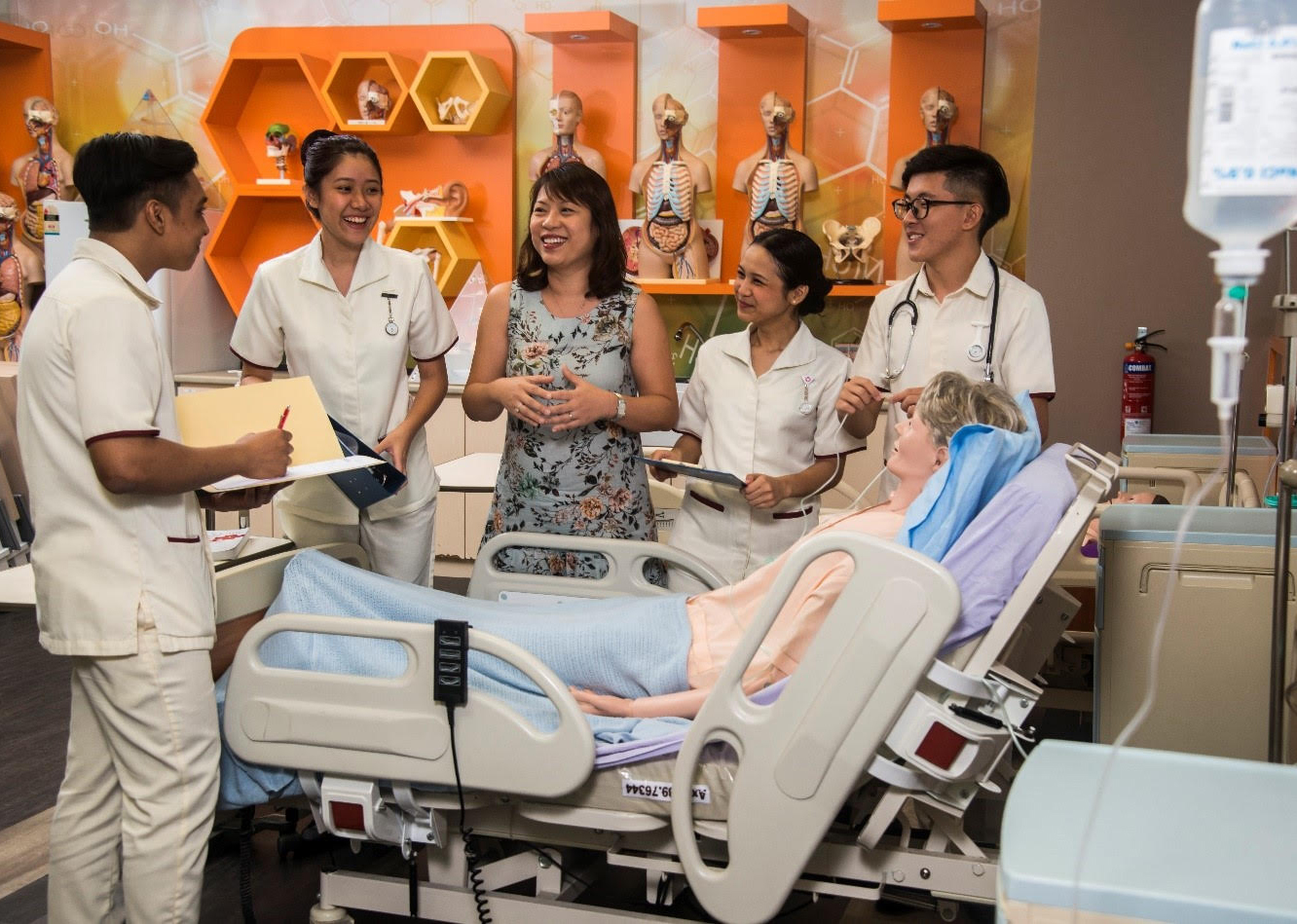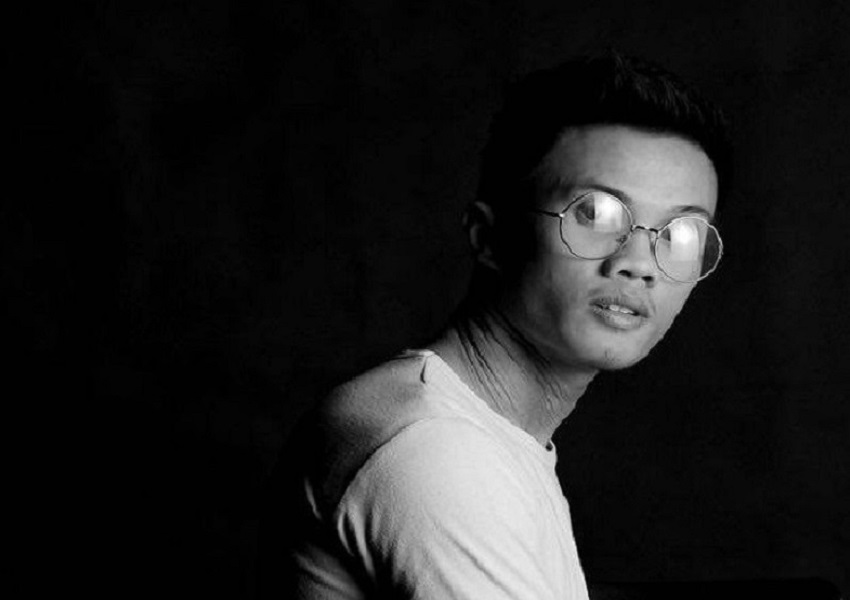Ms Tang Sheue Yin Mae, Institute of Technical Education, President’s Award for Teachers 2019 Finalist
Every year, the Institute of Technical Education (ITE) College East takes in a few hundred enthusiastic young students into its Nitec in Nursing programme. But it takes someone like Mae Tang, the course manager of the programme, to turn these girls and boys into skilled nurses ready to serve at the frontline of patient care.
Students join nursing because they want to care for people, but Mae says, “Caring is not enough. You don’t have to be a nurse to care for people. You can do that in various professions. In nursing, you have to care and have skill and discipline. Compassion and resilience go hand in hand.”
To prepare them, Mae uses the acronym WAR: W for Willingness, A for Attitude, R for Readiness. “In nursing, you have to be at WAR,” says Mae. “People’s lives are in our hands.”
So she asks her students: Are you willing to do what is necessary? To be well groomed, to be on time, to put in the required hours? Do you have the attitude to pull yourself up even after you fail? Are you ready to do what is needed, even if it is cleaning faeces?
Students struggle, Mae admits. She has had situations when a student made a mistake with a patient and became too shaken to come back to school. Mae’s answer in such situations is, “You have made a mistake. Accept it. Go back the next day and do it better. Otherwise, you won’t have learnt from your mistake.”
She adds, “Nursing is like being in a room with no exit signs. If there is a ‘fire’, you
have to learn to put it out.”
Tough love is Mae’s signature.
First, the tough part
The first step to being a nurse, Mae believes, is self-discipline. “You can only help
others when you have learnt to manage yourself.” So she talks to her students about
treating themselves with respect — coming to class on time, being well-groomed,
being diligent, having a good self-image.
To help students who struggle with low self-image, she started a Right Healthy Habits
programme so more students can feel confident and good about themselves. The
semester-long programme covers healthy eating, exercise and general health
knowledge. The students learn to measure height and weight and check the Body
Mass Index (BMI). They experience first-hand what it means to live in a healthy way
and its associated benefits.
To keep things exciting, the school worked with the Health Promotion Board (HPB)
who sent instructors to lead the students in Zumba and K-pop dance exercises. HPB
also invited external speakers to give motivational talks to students.
The Nursing department tapped on the expertise of the ITE community. – for example,
they sought help from the Food Science Department, to help the students learn about
better nutrition. They also roped in the staff members in charge of Nitec in Fitness Training to put together a programme through which the Nitec in Fitness Training students got to train the nursing students. This has become a very popular class with many students, overweight or otherwise.
Another programme Mae initiated was CHARACTER (Caring, Honesty, Awareness,
Respect, Advocate, Communication, Teamwork, Excellence and Role model). This
was to help students understand the code of conduct that should guide nurses as they
transit to working in a hospital setting. She came up with this idea after attending a
briefing on the code of ethics for healthcare workers at the Ministry of Health.
The staff of the nursing department created a series of videos, using staff members
as actors, to teach the students about how to behave and why it is important to behave
in a certain manner. For instance, is it acceptable to gossip about a patient? Should
you accept gifts from a patient’s family? She guides students through these
conversations, helping them see the different points of view.
“At the end of the day, I ask students to think how they would feel if the patient was
their family member,” says Mae.
Nurses must see the patients as people – with families, with careers. “They must look beyond the hospital pyjamas,” she says. “Hospitals tend to strip people of their identities. You, as a nurse, must return that identity to them.”
Next, the love part
Under the tough exterior is a teacher who stops at nothing to help her students succeed.
Some of the students come from challenging backgrounds. Some students are facing financial issues, a parent may be in prison, or the student could be living with elderly grandparents. In one case, the school found out about a girl who was working part-time on top of her attachment because she had to pay rent to her step-parents. The girl was a willing student, but she was tired and frustrated. The school is now trying to resolve the issue with the step-parents.
When there are discipline issues or if the students are struggling, Mae and her team spring into action. “We want to know what the issue is. It could be that the interaction with the teacher is not there. Or there could be systemic or process issues.”
Mae has many heart-warming stories of her students to recount. Brandon, who overcame learning difficulties, and has recently graduated from the Singapore Institute of Technology. Nicholas Chan, who quit secondary school, but worked really hard at ITE and was the first ITE student accepted into medical school. Muhammad Azerael Bin Azhar, who has overcome many challenges – and is now studying nursing at a polytechnic. When he needed financial help, Mae offered him part-time work in the college. When he was about to give up on his polytechnic dreams, Mae stepped in. When he was about to become homeless, Mae helped him find a place to stay. When the home she had found offered him a place, “he cried, and I cried, too,” says Mae.
To Mae, all her students are special. “Every student who walks through the doors of the nursing department is a unique individual to me. My advice to them is — knowledge and skills are the keys to your future. Leave any unhappy past outside, as ITE is a fresh start for you. Put your best foot forward and my teachers and I will be here for you.”




.jpg)

